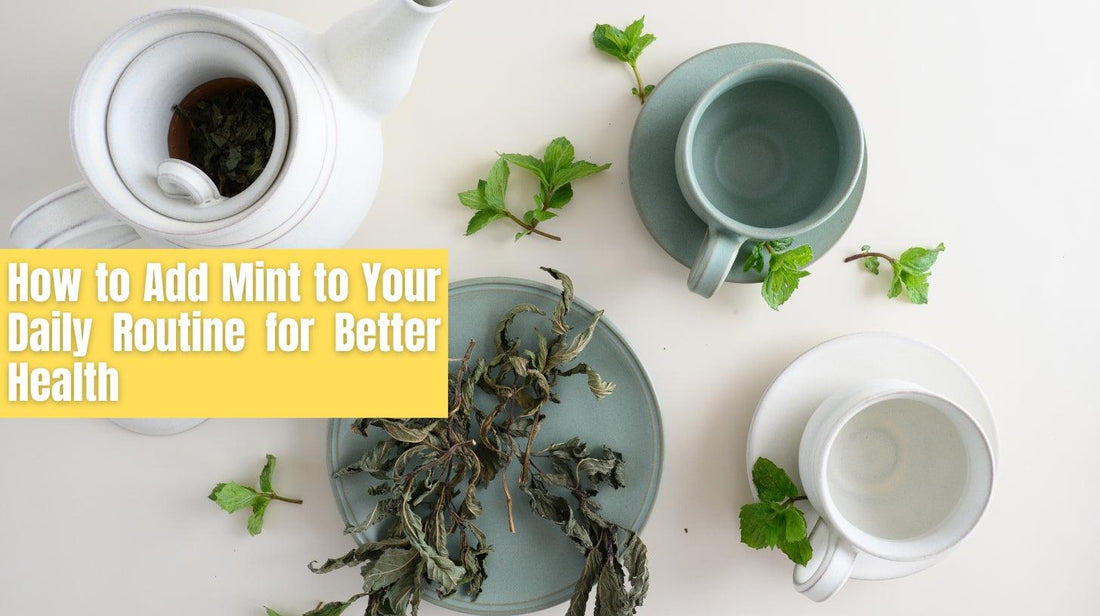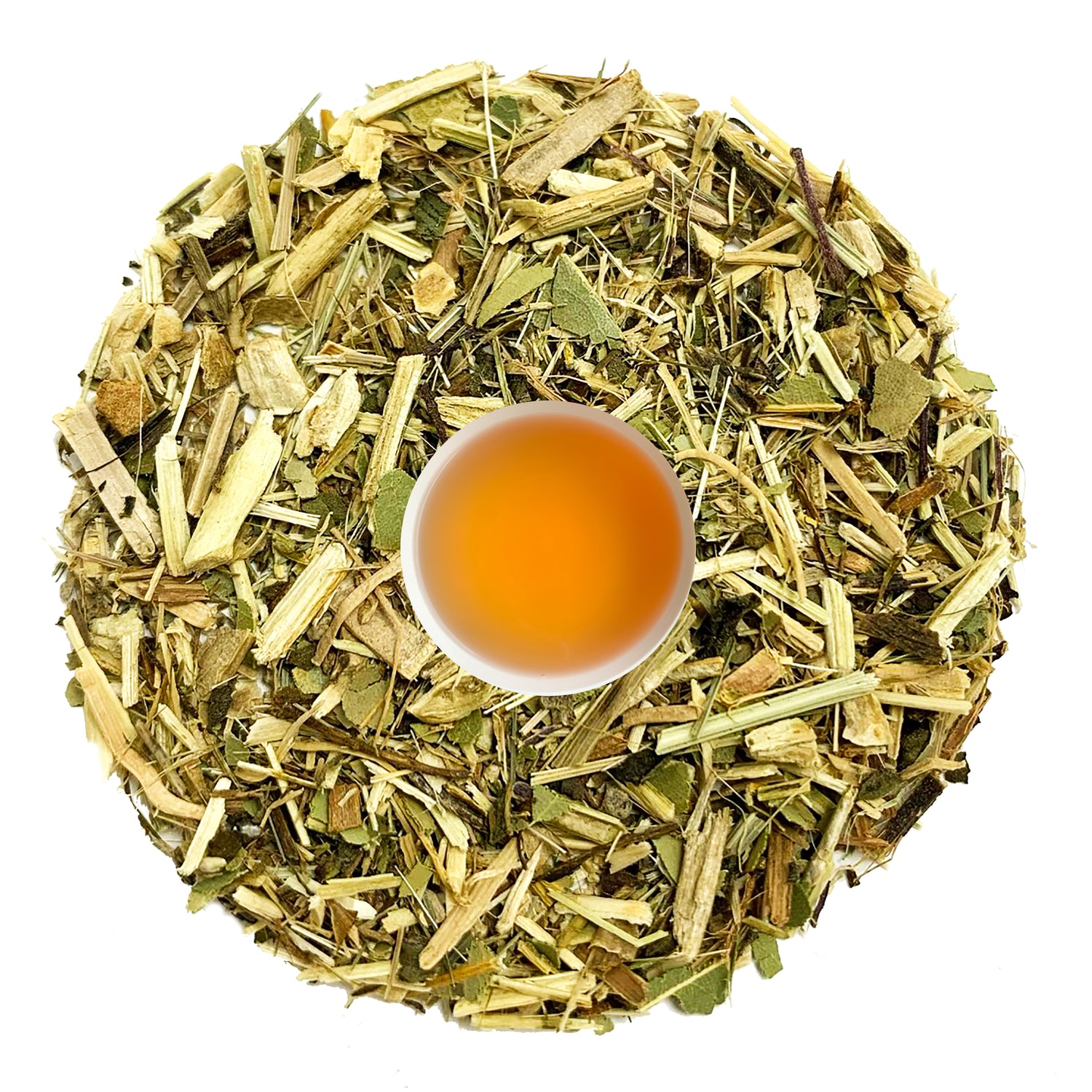
How to Add Mint to Your Daily Routine for Better Health
Mint—More Than Just a Breath Freshener
When you think of mint, what comes to mind? Gum? Toothpaste? A sprig on a fancy dessert?
Sure, mint is known for its cooling flavor and fresh aroma. But this humble herb does far more than just make things smell and taste better. With its long history in both traditional medicine and modern health circles, mint (particularly fresh mint leaves) has quietly earned a reputation as a wellness superstar.
From easing digestion to improving brain function and even reducing stress, the benefits of mint are impressively wide-ranging. So, if you're wondering, "Is mint good for you?"—the answer is a resounding yes.
Now, let’s dive into how mint can help your health and how to easily make it part of your daily life.
1. The Health Benefits of Mint: Why It Deserves a Spot in Your Day
Mint isn’t just a refreshing herb; it’s loaded with beneficial compounds that support your body and mind.
A. Digestive Support
Mint has long been used to soothe digestive issues like bloating, gas, and indigestion. The menthol in mint helps relax the muscles of the digestive tract, making it easier for food and gas to pass through. No wonder peppermint tea is grandma's go-to for an upset stomach.
Try This: Sip on a cup of Himalayan Spearmint Tea from Danfe Tea after meals for a calming digestive aid.
B. Brain Function & Alertness
Several studies suggest that the aroma of mint can boost memory and alertness. Just inhaling mint oil or sipping mint tea may help improve focus and reduce fatigue.
Fun fact: Students used to chew mint gum before tests to help them stay sharp. Coincidence? Maybe not.
C. Natural Stress Reliever
Mint's aroma has a calming effect on the nervous system. Mint tea or mint-infused water can lower stress levels and help you feel more relaxed.
D. Respiratory Relief
Suffering from congestion? The menthol in mint acts as a natural decongestant, helping to open airways and soothe irritated sinuses.
E. Anti-Inflammatory and Antibacterial Properties
Mint contains rosmarinic acid and other compounds with powerful antioxidant and anti-inflammatory effects. It also has antibacterial properties, which help promote oral and gut health.
F. Nutritional Benefits
Mint is low in calories but high in nutrients, including:
- Vitamin A (great for eye health)
- Iron
- Manganese
-
Folate
So yes, mint is healthy and then some.
2. Easy and Delicious Ways to Add Mint to Your Day
Ready to enjoy the healthy benefits of mint? Here’s how to incorporate it into your routine without a second thought.
A. Start Your Day with Mint Water
Infuse your morning with freshness—literally. Drop a few fresh mint leaves into a glass of warm or cold water. Let it sit for a few minutes. This simple detox drink supports digestion and gives you a gentle energy boost.
Bonus tip: Add lemon slices for a burst of vitamin C and flavor.
B. Sip on Mint Tea Anytime
One of the easiest (and tastiest) ways to enjoy mint’s benefits is through herbal mint tea.
- Morning Pick-Me-Up: Try Spearmint Lemongrass Herbal Tea for energy without caffeine jitters.
-
Evening Wind-Down: Go for Himalayan Spearmint Tea to help your body relax before bed.
These teas are naturally caffeine-free, making them perfect for any time of day.
C. Mint in Smoothies
Toss a few mint leaves into your morning smoothie. It pairs wonderfully with pineapple, berries, cucumber, and even chocolate protein powder.
D. Add It to Salads & Sides
Fresh mint brings brightness and flavor to salads, grains, and side dishes.
- Sprinkle chopped mint over couscous or quinoa
- Add to cucumber salad or watermelon feta salad
- Mix into yogurt for a refreshing dip
E. Mint-Infused Ice Cubes
Chop mint and freeze it with water in ice cube trays. Drop a cube or two into your drink for a burst of flavor and nutrients.
F. Mint Oil for Aromatherapy
Not into eating or drinking mint daily? No worries. Use mint essential oil in a diffuser to help clear your mind and lift your mood.
3. Is Mint Good for Everyone?
For most people, mint is perfectly safe in culinary amounts. However, here are a few quick caveats:
- If you have acid reflux, large amounts of mint might worsen symptoms.
- Mint essential oils are very concentrated—never ingest unless directed by a professional.
-
Some people may be allergic to mint or experience mild side effects like skin irritation.
Always listen to your body!
4. What Tea Blends Work Best with Mint?
If you love the taste and want to take advantage of mint’s health benefits in a cozy cup, here are some standout tea blends from Danfe Himalayan Mint Collection:
- Spearmint Lemongrass Herbal Tea: Refreshing, caffeine-free, perfect for digestion and calm.
- Himalayan Spearmint Tea: A pure spearmint leaf tea with cooling flavor and stress-relief potential.
- 26° Himalayas Loose Leaf Spearmint Black Tea: Grown on some of the highest altitudes and diverse climatic conditions, loose leaf spearmint teas have robust flavors. These plants are grown at altitudes ranging from 7000-7500ft.
- 72° Spearmint PCOS Power Potion Tea
Mint pairs especially well with green tea if you’re looking for a digestive, energizing, and antioxidant-rich beverage.
Ready to refresh your daily routine the natural way?
Start with a soothing, flavorful cup of mint tea. Whether you're looking to relax, de-bloat, or simply add a little pep to your step, mint has your back.
👉 Explore Danfe Tea’s Herbal Mint Blends Here
Your body (and taste buds) will thank you.
FAQs About Mint and Health
Q: What are the main health benefits of mint?
A: Mint helps digestion, reduces stress, boosts brain function, and has anti-inflammatory properties.
Q: Can I eat raw mint leaves every day?
A: Yes! In moderation, raw mint is healthy and safe to eat daily—just wash it properly.
Q: Is drinking mint tea better than eating mint?
A: Both are beneficial! Mint tea is soothing and hydrating, while raw mint adds texture and flavor to dishes.
Q: Does mint help with weight loss?
A: Mint may support weight loss indirectly by improving digestion, reducing bloating, and curbing appetite.
Q: Is mint safe during pregnancy?
A: In small amounts, yes. But always consult your doctor, especially with concentrated mint oils or herbal blends.










